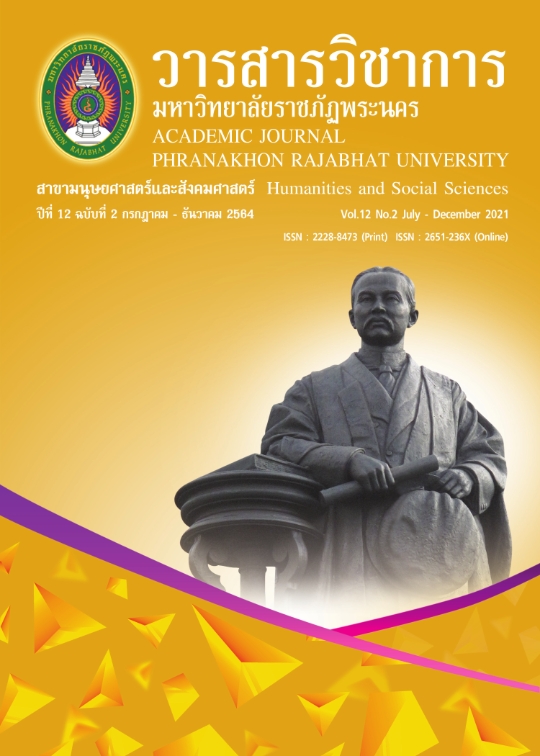THE USE OF KWL PLUS AND VIDEO IN READING COMPREHEWNSON SKILLS OF GRADE 6 BHUTANESE STUDENTS
Keywords:
KWL Plus, Video, Reading Comprehension Skills, Grade 6 Students, ESLAbstract
The learning objectives of this study were to find out students’ learning achievement and satisfaction towards the use of multimedia technology (video clip and PPT) in teaching and learning mathematics in grade 5 Bhutanese classroom. A mixture of quantitative and qualitative methods was employed to gather the required data. The instruments used to gather the quantitative and qualitative data were achievement tests (pretest and posttest) and semi-structured interview respectively. The quantitative data were analyzed using Paired Sample t-test in the computer program and qualitative data were analyzed using the thematic analysis technique. The analysis of the pretest and posttest scores through Paired Sample t-test revealed a higher mean score in the posttest (14.72) than the pretest (8.81) with a mean difference of 5.91. The significance (p) value was 0.001 which indicated that the use of multimedia technology was effective in teaching and learning mathematics. Likewise, the data collected through the semi-structured interview responses revealed positive satisfaction. This study recommends that teachers may also try teaching other topics in mathematics and other subjects using multimedia technology to make their lessons interesting and engaging, thereby enhancing students’ performance.
References
Albiladi, W.S. (2019). Exploring the use of written authentic materials in ESL reading classes: benefits and challenges. English Language Teaching, 12(1), 67-77. https://doi.org/0.5539/elt.vl12n1p67
Almamari, A. H. Z. (2019). The Effect of K-W-L Plus Metacognitive Reading Strategy on Tenth Grade Students’ Reading Comprehension and Attitudes (Master’s Thesis). Retrieved from https://bspace.buid.ac.ae/bitstream/handle/1234/1613/20173810.pdf;jsessionid=447185D1AB66741994E7A1E9192D85AB?sequence=3
Arato, F. (2013). Towards a complex model of cooperative learning. Da Investigacao as Praticas, 3(1), 57-79. Retrieved from https://www.researchgate.net/publication/322683280_Towards_a_Complex_Model_of_Cooperative_Learning
Bajrami, L., & Ismaili, M. (2016). The role of video materials in EFL classrooms. Procedia-S Social and Behavioral Sciences, 232, 502-506. https://doi.org/10.1016/j.sbspro.2016.10.068
BCSEA. (2019). Education in Bhutan findings from Bhutan’s experience in PISA for development. Retrieved from https://www.oecd.org/pisa/pisa-for-development/Bhutan_PISA_D_National_Report.pdf
Dendup, P. (2020). The beliefs and practices of Bhutanese English teachers in teaching grammar in English as a second Language (ESL) classroom in Bhutan. International Journal of Linguistics and Translation Studies, 1(2), 84-99. https://doi.org/10.36892/ijlts.v1i2.32
Doiz, A., & Lasagabaster, D. (2018). Teachers’ and students’ second language motivational self system in English-medium instruction: a qualitative approach. Wiley Online Library, 52(3). https://doi.org/10.1002/tesq.452
Dorji, J. (2017). Communicative language teaching as conceptualized by Bhutanese English as second language teachers. Indonesian EFL Journal, 3(1), 1-10. https://doi.org/10.25134/iefj.v3i1.648
Hamdan, M. H. (2014). KWl-Plus Effectiveness on Improving Reading Comprehension of Tenth Graders of Jordanian Male Students. Theory and Practice in Language Studies, 4(11), 2278-2288. DOI:10.4304/tpls.4.11.2278-2288
Handayani, I. (2018). The Effect of Applying KWL Plus Strategy on the Students’ Achievement in Reading Comprehension at SMP Muhammadiyah 48 Medan (Doctoral dissertation).
Kim, Y. G., Lee, H., & Zuilkowski, S. S. (2020). Impact of literary interventions on reading skills in low and middle-income countries: a meta-analysis. Child Development, 91(2), 683-660. https://dou.org/10.1111/cdev.13204
Kurniaman, O., & Zufriady, Z. (2019). The Effectiveness of Teaching Materials for Graphic Organisers in Reading in Elementary School Students. JES: Journal of Educational Sciences, 3(1), 48-62. https://doi.org/10.31258/jes.3.1.p.48-62
Kurt, S. (2020). Social learning theory: Albert Bandura. Retrieved from https://educationaltechnology.net/social-learning-theory-albert-bandura/
Le, V.T.T., & Nguyen, H.T.T. (2020). The effect of the KWL strategy on Vietnamese fifth-grade students’ reading comprehension achievement at VstarSchool. Journal of Science Ho Chi Minh City Open University, 10(3), 67-78. https://doi.org/10.46223/HCMCOUJS.soci.en.10.1.547.2020
Lou, Y., & Xu, P. (2016) Improving Reading Performance for Non-English-Majored Graduate Students: Combining a Know-Want-Learn Plus Model of Meta-Cognitive Reading Strategy Instruction and Internet-Based Language Laboratory Support. Creative Education, 7, 325-332. doi: 10.4236/ce.2016.72033.
Mei, Y. (2018). How to Apply Advance Organiser Strategy to Vocabulary Teaching. International Journal of Arts and Commerce, 7(4), 54-59. Retrieved from https://www.ijac.org.uk/images/frontImages/gallery/Vol.7No.4/6.54-59.pdf
Ministry of Education. (2017). Press release BCSEA (X) Examination 2016. Retrieved from https://www.education.gov.bt/doccuments_press+Release.pdf
Mohammadian, A., Saed, A., & Shahi, Y. (2018). The Effect of Using Video Technology on Improving Reading Comprehension of Iranian Inter-mediate EFL Learners. Advances in Language and Literary Studies, 9(2), 17-23. https://dx.doi.org/10.7575/aiac.alls.v.9n.2p.17
Ningsih, N. (2020). The KWL strategy to improve reading skill in FLSP (foreign language for specific purpose) class at Mathematics department in the University of Muhammadiyah Malang. Retrieved from https://eprints.umm.ac.id/63641/
Polsky, J. (2018). Minding the gap: migration of Indian English errors to Bhutan. Bhutan Journal of Research & Development, 57-67. Retrieved from https://www.rub.edu.bt/images/rub/research/publications/journals/I-Autumn-2018.pdf#page=57
Rahmawati, E.Y. (2018). Analysis of students’ English reading comprehension through KWL (Know-Want-Learn) learning strategies. International Journal of Language Teaching and Education, 2(3), 238-247. https://doi.org/10.22437/ijolte.v2i3.5641
Royal Education Council. (2017). English Reading and Literature, Class VI. Paro, Bhutan: Royal Education Council.
Schooler, J. W., Reichle, E. D., & Helpern, D. V. (2004). Zoning Out while Reading: Evidence for Dissociations between Experience and Metaconsciousness. In D. T. Levin (Ed.), Thinking and seeing: Visual metacognition in adults and children (pp. 203-226). Cambridge, Massachusetts: MIT Press.
Solikha, I. (2018). Insufficient preparation of teaching reading: what should teacher challenge? IJOTL, 3(3), 71-84. https://doi.org/10.30957/ijolt-tl.v3i3.499
Sriprabha, M., & Sankar, G. (2016). English language as a panacea. Language in India, 16, 248-255. Retrieved from www.languageinindia.com
Sridharan, P. N. A., & Said, N. E. M. (2020). Effect of graphic organizer (KWL chart) on learners’ reading comprehension in an ESL setting. International Journal of Management and Humanities (IJMH), 4(8), 43-53. https://doi.org/10.35940/ijmh.HO768.044820
Stevens-Fulbrook, P. (2019).15 Learning theories in education (A complete summary). Retrieved from https://teacherofsci.com/learning-theories-in-education/
Vaisean, T., & Phusawisot, P. (2020). The Improvement of Reading Comprehension of Secondary School Students Using Web-based Instruction and KWL-Plus. Journal of Modern Learning Development, 5(6), 26-37. Retrieved from https://so06.tci-thaijo.org/index.php/jomld/article/view/245360
Wangchuk, K., & Chalermnirudorn, N. (2019). Impact of collaborative strategic reading on the ESL reading comprehension of grade seven students in English. Academic Journal Phranakhon Rajabhat University, 10(1), 126-142. Retrieved from https://so01.tci-thaijo.org/index.php/AJPU/article/view/139499
Young, W. Y. (2020). Student-Produced Video of Role-Plays on Topics in Cell Biology and Biochemistry: A Novel Undergraduate Group Work Exercise. Front. Educ. 5(115). doi: 10.3389/feduc.2020.00115
Downloads
Published
How to Cite
Issue
Section
License
Copyright (c) 2021 Academic Journal Phranakhon Rajabhat University

This work is licensed under a Creative Commons Attribution-NonCommercial-NoDerivatives 4.0 International License.
"บทความวิชาการในวารสารฉบับนี้ ถือเป็นความรับผิดชอบของผู้เขียนเท่านั้น"
สงวนลิขสิทธิ์ตามพระราชบัญญัติลิขสิทธิ์




